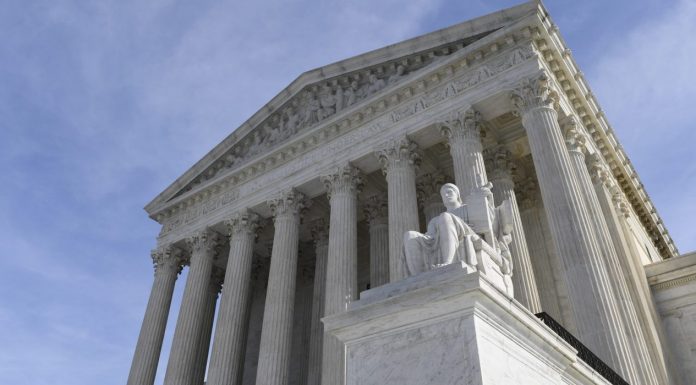(Jacob Bruns, Headline USA) A veteran Georgetown law professor, Ilya Shapiro was put on leave by the prestigious university after questioning the integrity of President Joe Biden‘s commitment to choosing a black woman for his Supreme Court nominee, Just the News reported.
Soon after Justice Stephen Breyer announced his retirement, Shapiro wrote a tweet suggesting that Biden’s commitment to such a narrow view of identity politics could actually hinder progressives in their attempt to remake America.
“Objectively best pick for Biden is Sri Srinivasan, who is solid prog & v smart,” he wrote in the since-deleted tweet.
But his recommendation, Sri Srinivasan, is Asian, and therefore does not fit into Biden’s vision of the perfect Supreme Court Justice.
“Even has identity politics benefit of being first Asian (Indian) American. But alas doesn’t fit into latest intersectionality hierarchy so we’ll get lesser black woman. Thank heaven for small favors?”
Sri Srinivasan — an Indian — currently serves as the chief judge on the District of Columbia’s Court of Appeals.
Soon after his post, the race police came after Shapiro.
Shapiro soon issued an apology, suggesting that diversity is our strength and spouting other similar platitudes.
“A person’s dignity and worth simply do not, and should not, depend on race, gender, or any other immutable characteristic,” he wrote.
“While it’s important that a wide variety of perspectives and backgrounds be respected in the judiciary, so blatantly using identity politics in choosing Supreme Court justices is discrediting to a vital institution,” he wrote.
The dean of Georgetown’s law school has decided to investigate Shapiro’s tweet to ensure that he didn’t violate anti-harassment rules.
Shapiro later wrote that he expects “to be vindicated” and is looking forward to “joining my new colleagues in short order.”
But radicalized law students have moved to cancel Shapiro for good.
The Black Law Students Association demanded that Shapiro’s offer be rescinded:
“Shapiro’s racist rhetoric and continued association with the University sends the visceral message that even if black women attend the best law schools, hold the highest clerkships, and serve on the most prestigious courts, they are still not good enough,” they wrote.

